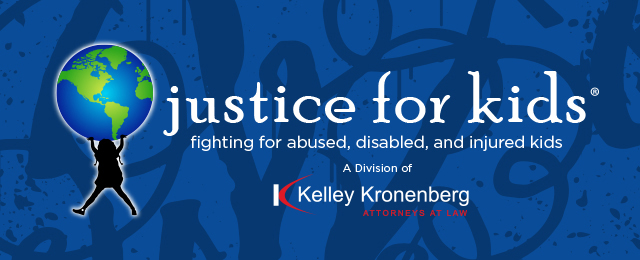Navigating the Complexities of Child Welfare: A Critical Look at Illinois DCFS
By: Julianna Walo, Esquire
The Illinois Department of Children and Family Services (DCFS) faces significant challenges in fulfilling its crucial mission of protecting and caring for the state’s most vulnerable children and preventing cases of child neglect by the department itself. As of July 31, 2024, the agency oversees the care of 19,097 children (about the seating capacity of Madison Square Garden), with 7,767 in foster homes and 10,188 placed with relatives. However, a concerning statistic emerges: As of June 30, 2024, 1,074 children remain in institutional settings, including hospitals, health facilities, and group homes.
One particularly troubling issue plaguing the system is the practice known as “beyond medical necessity” (BMN). This term refers to children, often around 12 years old, who are kept in psychiatric hospitals or similar facilities long after their medical needs have been addressed. In 2023, the average stay in such placements reached an alarming 94 days – a 20% increase from the previous year, according to DCFS data.
The Cook County Public Guardian’s Office has taken legal action to address this child neglect crisis. Their lawsuit highlights the staggering financial burden of BMN, costing Illinois taxpayers over $125,000 per month. Between 2015 and 2017 alone, more than 800 foster children experienced unnecessary extended hospital stays.
The human cost of BMN is even more concerning. Children confined to these environments often suffer from depression, anger, and fear. They face limited or no access to proper education, outdoor activities, or visits with friends and family – essential elements for healthy development. Experts agree that BMN placements are detrimental to these children’s physical and emotional well-being.
Adding to the complexity of the situation is Illinois’ struggle with lengthy foster care placements. An Expert Panel, convened as part of a federal lawsuit, found that children in Illinois remain in foster care longer than in any other state in the nation. This prolonged instability further compounds the challenges faced by these vulnerable youth.
The roots of the current crisis can be traced back to policy decisions made under former Governor Bruce Rauner’s administration, which saw the elimination of 500 residential beds for foster children. While current Governor J.B. Pritzker has announced plans for 80 new placements, this falls short of addressing the urgent need. As a result, children across Illinois continue to linger in various medical institutions beyond medical necessity, effectively losing precious moments of their childhood.
This situation demands immediate attention and comprehensive reform. As advocates for children’s rights and well-being, it is crucial that we continue to shine a light on these issues and push for meaningful changes in the Illinois child welfare system.
A Call to Action: Protecting Illinois’ Most Vulnerable Children
The challenges faced by the Illinois Department of Children and Family Services (DCFS) are not just statistics – they represent real children whose futures hang in the balance. As members of our community, we have a moral obligation to act. Here’s how you can make a difference:
- Report Suspected Abuse or Neglect: If you believe a child is at risk, don’t hesitate to speak up. Contact the Illinois DCFS Child Abuse Hotline at 800-25-ABUSE (800-252-2873) or file a report online at [DCFS reporting website]. In emergencies, always call 911 first.
- Advocate for Change: Reach out to your local and state representatives. Express your concerns about the “beyond medical necessity” placements and the shortage of appropriate foster care options. Urge them to prioritize funding and reforms for the child welfare system.
- Support Foster Families: Consider becoming a foster parent or supporting those who are. Local foster care organizations often need volunteers, mentors, and donations to provide better services for children in care.
- Stay Informed: Follow reputable sources for updates on Illinois DCFS policies and practices. Attend community meetings or join local child welfare advocacy groups to learn more about ongoing issues and solutions.
- Seek Legal Guidance: If you’re aware of a specific case where a child’s rights may have been violated, or if you’re interested in learning more about advocating for systemic change, consider reaching out to specialized attorneys who focus on child welfare law.
By taking action, we can work towards a future where every child in Illinois has access to safe, nurturing environments and the support they need to thrive. Remember, the well-being of our community’s children is a responsibility we all share.
For more information on how you can get involved or to discuss specific concerns, please contact our office. Together, we can make a difference in the lives of Illinois’ most vulnerable children.
To learn more about Justice for Kids, visit us at www.JusticeForKids.com.
Julianna B. Walo, Esq.
Attorney, Justice for Kids
Chicago, IL
754-888-KIDS (5437)
References:

Comments are closed here.